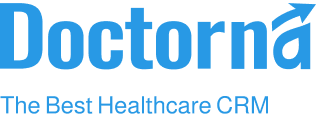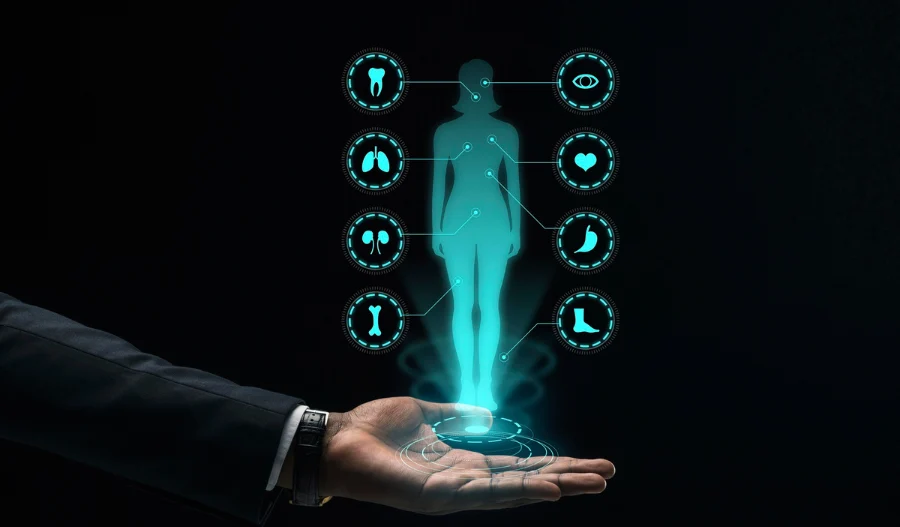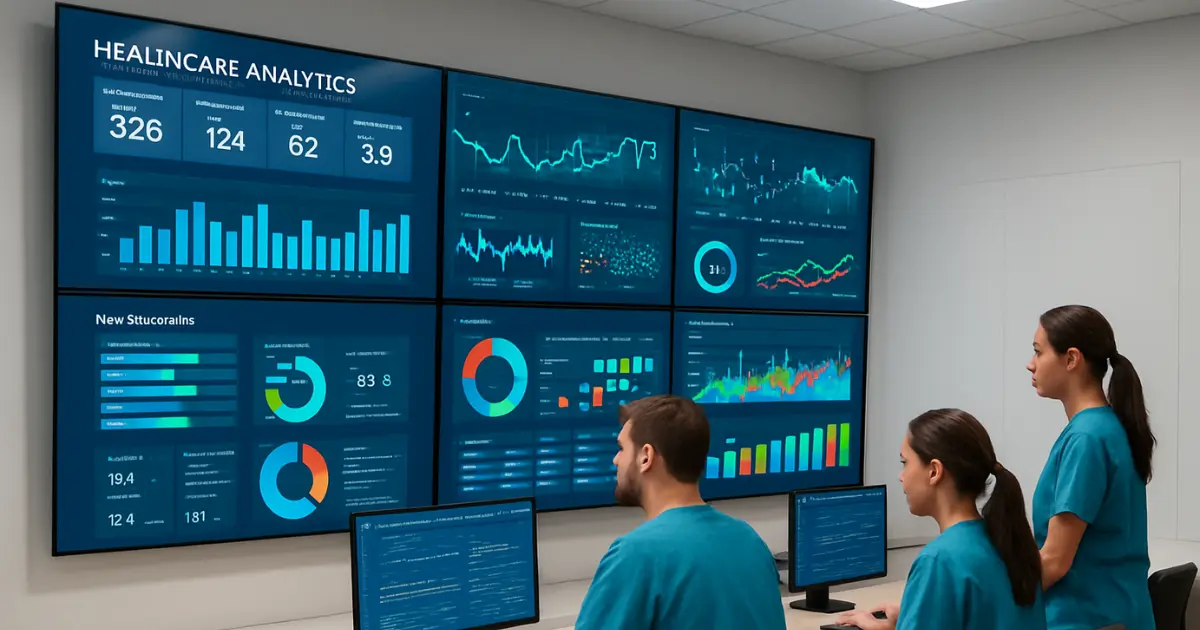Understanding AI in Healthcare CRM
Before we dive into the revolution, let’s clarify what we mean by AI in Healthcare CRM.
Traditional CRM systems are excellent at automation and data organization. They can send automated reminders, store patient histories, and manage schedules. But AI-powered CRM goes a significant step further. It integrates advanced technologies like:
- Machine Learning (ML): Algorithms that learn from data patterns to make predictions or decisions without explicit programming.
- Natural Language Processing (NLP): Enables computers to understand, interpret, and generate human language.
- Predictive Analytics: Using statistical algorithms and machine learning techniques to identify the likelihood of future outcomes based on historical data.
The key distinction is that AI-powered CRM doesn’t just manage data; it interprets it. It analyzes vast datasets of patient interactions, clinical notes, demographics, and behaviors to identify complex patterns, predict future needs, and generate actionable insights. This transforms your CRM from a reactive record-keeper into a proactive, intelligent assistant.
Key Applications: Where AI Transforms Patient Management
The practical applications of AI in healthcare CRM are vast and immediately impactful. Here’s how intelligent systems are making a difference:
A. Predictive Patient Analytics: Anticipating Needs
Imagine knowing which patients are at higher risk of chronic conditions, identifying those likely to miss appointments, or even forecasting demand for specific services. AI makes this possible. By analyzing historical data, AI can provide your team with predictive insights, allowing for proactive interventions and optimized resource planning.
B. Intelligent Patient Engagement & Communication: A Personalized Touch
This is where AI truly shines in enhancing the patient experience:
- AI-Powered Chatbots: Available 24/7, these smart assistants can handle routine inquiries, answer FAQs, guide patients through booking processes, and even conduct basic pre-screening, freeing up human staff for more complex tasks.
- Personalized Outreach: Based on a patient’s health profile and interaction history, AI can trigger highly personalized communications, such as preventive care reminders, tailored educational content, or even custom appointment follow-ups.
- Automated Follow-Ups: Beyond simple reminders, AI can intelligently schedule and send post-appointment checks, medication adherence prompts, or condition-specific educational materials, ensuring continuous care.
C. Optimized Operational Efficiency & Resource Allocation
AI streamlines internal processes, leading to significant efficiency gains:
- Smart Task Management: AI can automate the assignment of follow-up tasks to the right team members based on patient needs or inquiry types.
- Intelligent Routing: Patient inquiries (via chat, email, or even phone) can be intelligently routed to the most appropriate department or specialist, ensuring faster and more accurate responses.
- Predictive Staffing: By analyzing appointment trends and patient flow, AI can help forecast staffing needs, optimizing schedules and reducing burnout.
D. Enhanced Lead Management & Patient Acquisition
AI helps healthcare organizations grow their patient base more effectively:
- High-Potential Lead Identification: AI algorithms can analyze incoming inquiries and existing data to identify individuals most likely to convert into patients.
- Automated Nurturing Campaigns: AI can automate and personalize follow-up sequences for prospective patients, sending relevant information at the right time to guide them through the decision-making process.
- Marketing Effectiveness Analysis: AI can dissect marketing campaign data to pinpoint what works best, optimizing your patient acquisition strategies for better ROI.
Transformative Benefits: Impact on the Healthcare Industry
The adoption of AI in healthcare CRM isn’t just about technological advancement; it’s about fundamentally improving how healthcare is delivered and experienced.
A. Drastically Improved Patient Outcomes & Satisfaction:
By enabling proactive care, personalized interactions, and seamless patient journeys, AI helps foster better health outcomes and significantly boosts patient satisfaction.
B. Significant Operational Efficiency & Cost Savings:
Automation of repetitive administrative tasks, optimized resource utilization, and reduced no-shows lead directly to substantial operational cost reductions and more efficient use of staff time, allowing them to focus on direct patient care.
C. Hyper-Personalized Patient Journeys:
AI empowers healthcare providers to build stronger, more meaningful patient relationships through truly tailored experiences, anticipating individual needs even before they are expressed.
D. Data-Driven Strategic Decision Making:
With actionable insights gleaned from AI analytics, organizations can make informed decisions about clinic growth, service expansion, quality improvement initiatives, and understanding both patient behavior and market trends.
E. Gaining a Competitive Advantage:
Adopting AI-powered CRM positions a healthcare facility as innovative and patient-centric, helping to attract and retain patients with superior digital experiences in an increasingly competitive market.
Challenges and Considerations for AI-Powered CRM Implementation
While the benefits are clear, successful implementation requires careful planning:
A. Data Privacy, Security & Compliance:
Protecting sensitive patient data is paramount. Any AI-powered CRM must adhere to strict healthcare regulations like HIPAA, GDPR, and local laws (e.g., UAE and KSA data acts). Ensuring ethical AI use and transparent data practices is non-negotiable.
B. Integration with Existing Systems:
Seamless connectivity with Electronic Health Records (EHR) and Electronic Medical Records (EMR) is crucial. The CRM should act as a unifying layer, ensuring data flow and interoperability across all your systems.
C. Staff Training & Adoption:
Introducing new technology requires effective change management. Comprehensive training and ongoing support are essential to ensure staff are comfortable and skilled in leveraging AI tools, overcoming potential resistance.
D. Initial Investment & ROI Measurement:
While the long-term benefits are substantial, understanding the initial investment costs and establishing clear metrics for measuring the tangible return on investment are key for successful implementation.
The Future Outlook: AI & the Evolution of Healthcare CRM
The integration of AI into CRM is just beginning. We can anticipate even deeper personalization, more sophisticated predictive models, integration with wearables and IoT devices for proactive health management, and voice AI becoming a standard for patient interaction.
AI is poised to transform healthcare from a reactive system to a proactive, preventive, and highly personalized model. It will empower providers to deliver more empathetic, efficient, and effective care, ultimately shaping a healthier future for all.
Choosing the Right AI-Powered Healthcare CRM Solution
Selecting the ideal AI-powered CRM is a strategic decision. Look for solutions that offer:
- Scalability: To grow with your practice, from a single clinic to a multi-location hospital group.
- Robust Compliance: Adherence to all relevant data privacy and security regulations.
- Comprehensive Features: Beyond basics, including advanced AI analytics, intelligent chatbots, and seamless integration capabilities.
- Ease of Use: An intuitive interface with a minimal learning curve for your staff.
- Dedicated Vendor Support: Reliable customer assistance for setup, training, and ongoing troubleshooting.
Platforms like Doctorna, which prioritize advanced AI analytics, robust WhatsApp integration, and comprehensive support, are at the forefront of delivering these future-proof solutions for diverse healthcare settings.
Conclusion
The AI revolution is here, and it’s fundamentally reshaping the CRM in the healthcare industry. By harnessing the power of artificial intelligence, healthcare providers can move beyond traditional patient management to deliver truly intelligent, personalized, and efficient care. This isn’t just about adopting new technology; it’s about embracing a new era of patient-centric healthcare that benefits providers and patients alike.
Ready to lead the charge in intelligent patient management?
Discover How Doctorna’s AI-Powered CRM Can Transform Your Practice
Frequently Asked Questions (FAQs)
Q: What’s the biggest advantage of integrating AI into a Healthcare CRM?
A: The biggest advantage is the shift from reactive to proactive patient management. AI enables predictive analytics, hyper-personalization of communication, and automation of complex tasks, leading to better patient outcomes and significant operational efficiencies.
Q: How does AI-powered CRM ensure patient data privacy and security?
A: Reputable AI-powered CRM solutions employ advanced security measures like end-to-end encryption, strict access controls, and robust compliance frameworks (e.g., HIPAA, GDPR, local data protection laws). The AI processes data to find patterns but doesn’t expose individual sensitive information without proper security protocols.
Q: Can AI-CRM integrate with our existing Electronic Health Records (EHR) system?
A: Yes, seamless integration with existing EHR/EMR systems is a critical feature of modern AI-powered CRMs. This ensures unified patient data across clinical and administrative platforms, avoiding data silos and improving continuity of care.
Q: Is AI-powered CRM only for large hospitals, or can small clinics benefit too?
A: AI-powered CRM is scalable and beneficial for all sizes of healthcare providers. Small clinics can gain significant efficiency through automated tasks and personalized patient engagement, while larger institutions can leverage AI for complex analytics, resource optimization, and managing vast patient populations.
Q5: What are some common AI features to look for in a healthcare CRM solution?
A: Look for features such as AI-powered chatbots, predictive analytics for patient behavior, automated personalized communication flows, intelligent lead scoring, and AI-driven reporting tools that offer actionable insights.







